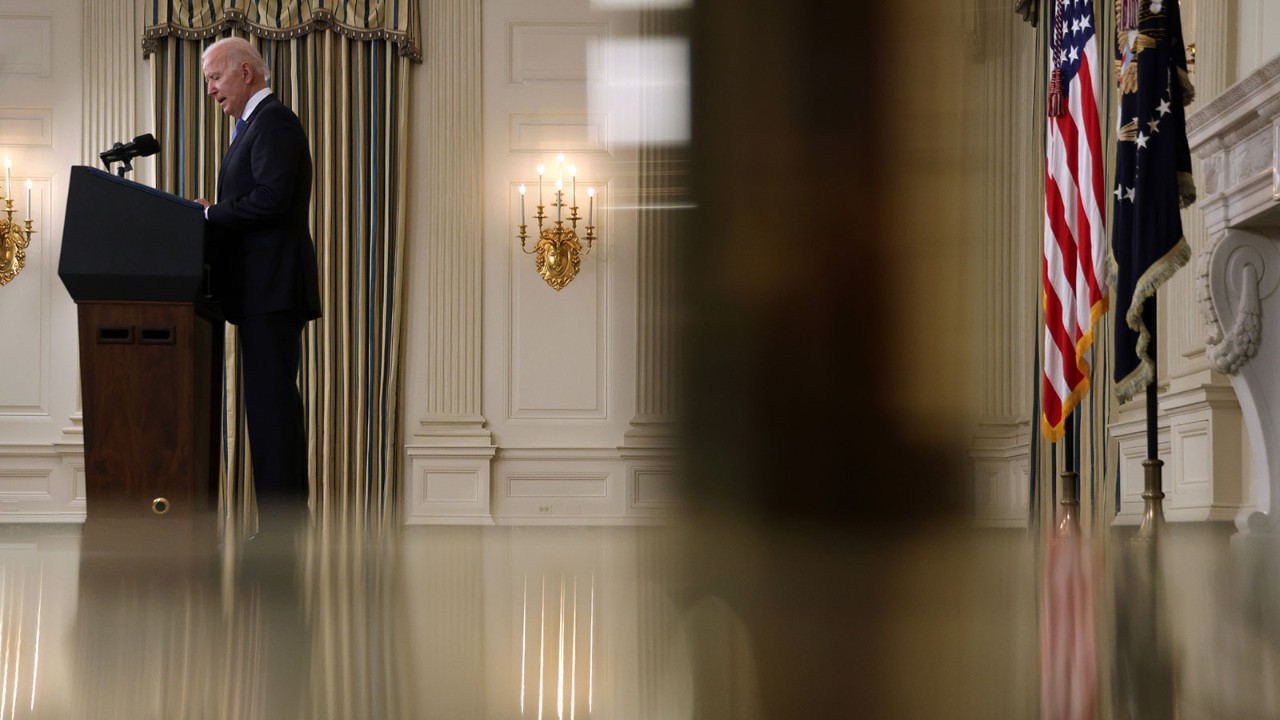
US President Joe Biden surprised many with the boldness of his spending packages. In his first 100 days in office, he pushed through a US$1.9 trillion Covid relief bill and proposed US$2.3 trillion of infrastructure spending – the largest upgrade since the construction of the nation’s interstate highway system in the 1950s.
To fund this ambitious expenditure, Biden is looking primarily to companies and the wealthy. In April he proposed a near doubling of the capital gains tax on Americans earning over US$1m a year, to a top rate of 43.4% from 23.8% at present.
But it is Biden’s efforts to raise the rate of corporate tax that has the biggest potential international spillover.
Opinion is divided on whether other nations would be willing to accept a global minimum tax rate
The first element of the proposal would be to raise the US corporate tax rate from the current 21% to 28% – more in line with other rich nations. The country would also more than double the minimum tax rate on the profits US companies earn overseas – a provision that is especially relevant for tech companies that hold part of their intellectual property in lower tax jurisdictions. This global intangible low-taxed income – GILTI for short – would be doubled to 21%.
Digital tax solution
To reduce the threat of US companies shifting their headquarters overseas in response, Biden has proposed a grand global bargain. In a move that should revitalise a stalled series of OECD talks, the new administration has put forward a fresh compromise to stop what US Treasury Secretary Janet Yellen has described as ‘a race to the bottom’ in global corporate tax.
Biden’s deal would establish a global minimum corporate tax of 21%. In exchange, other advanced nations would get the power to levy taxes on giant US tech companies, which often aren’t subject to tax in nations where they lack a physical presence. This would replace the patchwork of digital taxes that have been imposed recently in nations as diverse as the UK, France and India.
So, what would be the main implications of this plan? And what are its chances of being accepted, especially given potential resistance from influential low-tax nations such as Ireland, Singapore, Switzerland and the Netherlands?
First, the very notion of a race to the bottom in corporate tax is disputed by some. On the surface, it seems hard to contest. The average headline corporate tax rate in rich nations has declined – from 32% in 2000 to just over 23% by 2018, based on OECD calculations. However, the story is not so simple, says Christopher Morgan, head of global tax policy at KPMG.
‘I’d describe it more as a race to the average,’ he says. ‘We’ve seen corporate tax rates stabilise over the past few years, with major nations coalescing around the 20% to 25% range and few going much lower.’
Meanwhile, revenues from corporate tax have been rising modestly as a share of GDP, from 2% in 1990 and just under 3% a decade ago, to just over 3% now. Here, the US is an outlier, with revenues falling from around 2% a decade ago to 1% as of the latest data.
Divergent views
Opinion is also divided on whether other nations would be willing to accept a global minimum tax rate.
‘Clearly, many lower tax jurisdictions – like Ireland or Singapore – have much more to offer companies beyond just an attractive fiscal regime,’ says Kate Barton, EY’s global vice chair for tax. ‘That said, a global increase to 21% would represent a dramatic change. Many nations have seen attractive corporate tax rates as a way to stimulate business.’
Morgan also makes the point that nations like the US already have the option to limit the degree to which companies headquartered in their country can shift profit overseas, through mechanisms such the GILTI. ‘This problem can largely be fixed by domestic tax law without the need for a global agreement,’ he says. ‘Measures often known as controlled foreign company rules can be introduced, for example, so a multinational can’t just have a foreign low-taxed subsidiary where it shifts all of the profit.’
Investment drivers
Second, tax is not the only factor companies look at in making investment decisions. ‘Companies are looking for a combination of factors and tax is typically a subordinate motive,' says Morgan. 'For example, the US offers access to a massive internal market, business-friendly regulation and a liquid financial market, so it will remain an attractive investment location even with a higher rate. Tax is very seldom the driver of businesses’ decisions.’
This sentiment was echoed by Peter Reilly, PwC’s tax policy leader for Ireland, a nation that has one of the world's most competitive corporate tax rates. ‘The risk is that multinationals who might have considered Ireland as an investment location would be put off by the fact that their HQ would need to pay top-up taxes at home to compensate for the low tax rate of 12.5% in Ireland,’ he says.
However, Reilly believes that Ireland ‘continues to punch above its weight in attracting foreign direct investment, even after the introduction of a range of anti tax avoidance measures in recent years.’
Basing international taxation rights on profit margin could exclude Amazon, which has kept margins slim
The US’s proposals for taxing digital companies around the world are likely to prove no less complex to negotiate, says Alex Cobham, chief executive of the Tax Justice Network. ‘The Biden administration has been quite canny in this aspect of the proposed deal,’ he says. ‘Allowing other countries to tax the top US digital firms is the sweetener they are offering to win approval for a global minimum corporate tax rate.
‘However, they have been keen to maintain the principle that no specific sector should be targeted, so their plan focuses on companies with large revenues and high profit margins. Consequently, it could end up including multinationals such as France’s Louis Vuitton.’
Contentious details
Overall, the plan is designed to impact only the top 100 firms, rather than the several thousand suggested by the previous OECD proposal. But while this represents a neat compromise, the details could prove contentious. For example, basing international taxation rights on profit margin could exclude Amazon, which has deliberately kept margins slim to win market share.
The key question is whether any of these proposals will secure approval. Objections could come not only from international negotiating partners, but also from within the US Congress, which shapes tax policy and must ratify treaties. Morgan believes that some compromise will win approval.
‘International talks on corporate tax have already missed various deadlines and if there is no agreement this time, countries will probably go for a unilateral approach to these issues – a pretty chaotic outcome,’ he says.
‘So, with so much at stake and with the US seemingly willing to offer significant compromises on taxing its big tech firms, I think some form of agreement will be reached.’
If Morgan is right, 2021 could be a memorable year for corporate tax policy.




